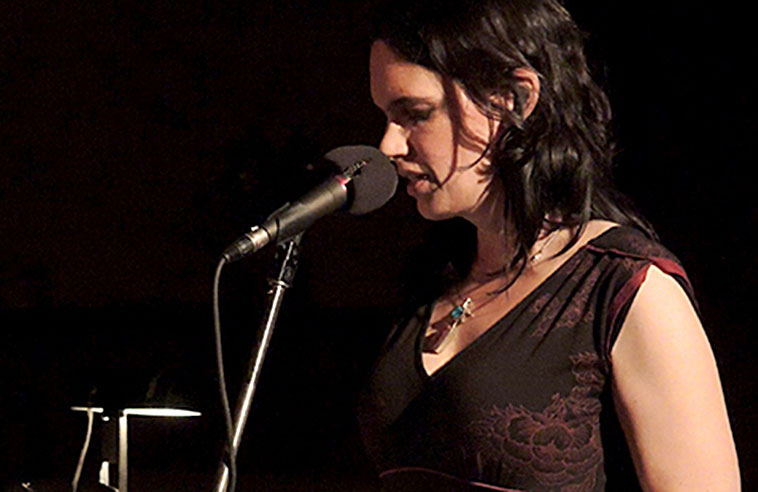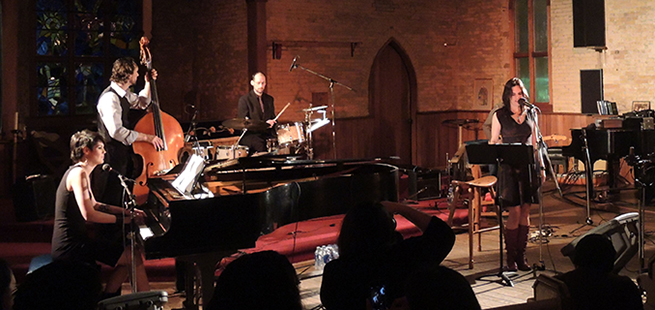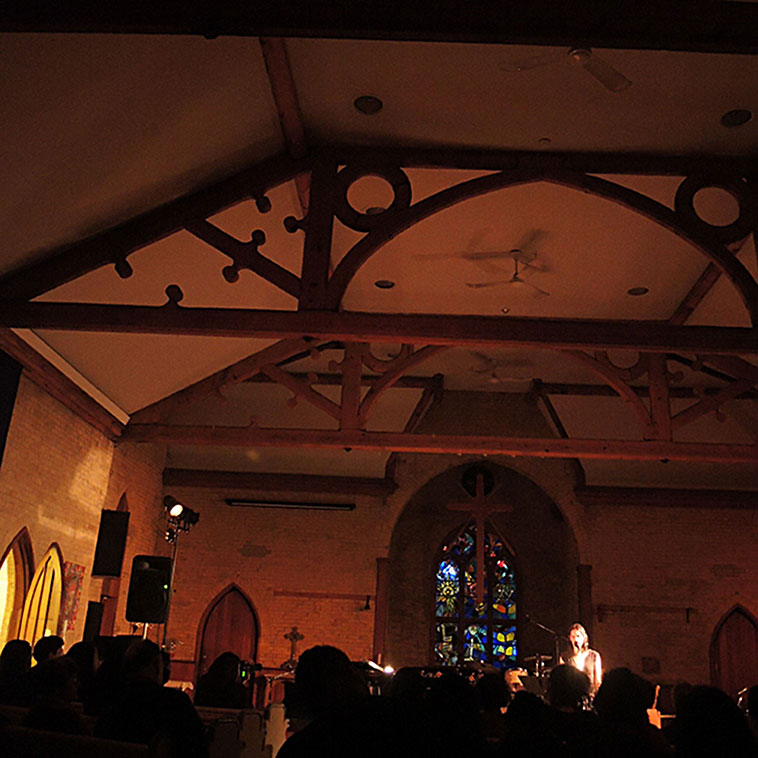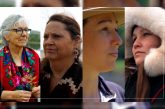
Photo: Aimee Rochard
I started to wonder about the impact of colonization on the spirit world and how do those spirits cope?…the way Canadian culture talks about Big Foot is much different than how Anishinaabe talk about Big Foot (Sabe)—it’s been misappropriated.
 As a lover of storytelling and literature, my tendency is to have deep emotional responses to whatever I am reading. Every so often, a book comes along that, as I delve deeper into the pages, is something like peering into a body of water and seeing the wonder of stars and ancestors reflected back in glorious undulation. Forgive the flowery simile, but that is exactly how I felt as I cradled Leanne Simpson’s latest book Islands of Decolonial Love. I say cradled, because I felt something close to reverence as I was drawn into each short story and poem.
As a lover of storytelling and literature, my tendency is to have deep emotional responses to whatever I am reading. Every so often, a book comes along that, as I delve deeper into the pages, is something like peering into a body of water and seeing the wonder of stars and ancestors reflected back in glorious undulation. Forgive the flowery simile, but that is exactly how I felt as I cradled Leanne Simpson’s latest book Islands of Decolonial Love. I say cradled, because I felt something close to reverence as I was drawn into each short story and poem.
When well written, poetic prose has special power, and the pages of Islands of Decolonial Love read like a salve for wounds from colonial hurts. The title itself evokes both romantic and radical imagery of Indigenous sovereignty and relationships. I asked Leanne what inspired her to choose this fitting title for the book:
“I started with a different title for the manuscript, and when I was in the final stages I happened to read an article by the Dominican-American author Junot Díaz entitled Decolonial Love. He was talking about his own experience as an immigrant and male, trying to find love and intimacy with a romantic partner, despite having the damage of colonialism, rape culture, and gendered violence as a starting point. The interview really resonated with me, his work has always resonated with me, and as I was reading it I was thinking, what if they weren’t Dominican men but Anishinaabe or Haudenosaunee women. Through these ideas, I think that Indigenous women are very good at love, despite all of the trauma of colonialism. I started to see Anishinaabe women—whether it’s their love of land, culture, Elders, or partners—as little islands of hope, little islands of love. Maybe we don’t always get it right, but we get glimpses of love, so the title really seemed to fit.”
As if to reflect the title of the book, Anishinaabemowin (Anishinaabe Language) appears throughout the book, inserted thoughtfully into the english narrative, with footnotes to translate. Simpson says that she wants the book to resonate for those language learners who might not have access to other speakers:
“I really wanted the characters in the book to reflect in some way my own experiences as an Anishinaabe Kwe living in 2014; I wanted Anishinaabe people to recognize themselves in the book. We often sprinkle bits of Anishinaabemowin into our conversation even if we’re not fluent. My own learning has been a struggle because I’m not surrounded by a community of fluent speakers. I go for a cycle where I’m studying for like six months, and then something will happen and it sort of gets derailed, then I have to go back to it. Whatever I’m writing I always try to include Anishinaabemowin, as a way of learning, as a way of my job. As Anishinaabe people, we have to build a community of speakers and language learners, at the same time deal with the shame of not speaking the language.”

Indeed, part of colonial violence on Indigenous people has been a tearing out of tongues, so to speak, via the residential school system. And with that comes a great deal of shame for not speaking one’s language, or having knowledge of ceremonies, medicines or other traditional ways as the result of colonial violence and oppression. For individuals who do not have access to land, Elders, and/or teachings, literature can be a lifeline for making connections that are otherwise frayed beyond recognition. Islands of Decolonial Love does exactly that, as it is seeped in a distinctively Anishinaabe Kwe voice and storyline. I asked Simpson about how the language informs her creative process:
“I wanted to use Anishinaabek esthetics or Anishinaabek ways or techniques of storytelling. Those are encoded in the language, and encoded in the way our traditional storytellers tell stories. A lot of our stories take place on Ahki (on the land) but there’s also other things happening in the spirit world, in another dimension. I wanted to have that multi-layered, multi-dimensional technique. I wanted to reference our stories, and repetition was really important in mirroring the poetry, a technique I learned by spending a lot of time at the petroglyphs—I wanted to use some of that. Metaphor is also really important in our traditional stories… all of those things are conceptualized really well in the language, so what if even though it’s in English and in print, what if I use some of those techniques that my ancestors used. I wanted to take on gender as well, and that really works in the language. People didn’t notice that I hadn’t ascribed gender to those characters, and for me I was thinking, what if gender isn’t a binary? What does your world look like, because that is the world of Anishinaabemowin which is the world of my ancestors.”

In keeping with the traditional teaching of “All My Relations”, Islands of Decolonial Love tells stories from various perspectives, including the spirit world. Simpson spoke about one of her favourite stories in the book, “She Told Him 10,000 Years of Everything”, and why she was compelled to tell that story specifically:
“As humans, we spend a lot of time thinking about the impact of colonization on us as humans, and the land and animals. But I started to wonder about the impact of colonization on the spirit world and how do those spirits cope? How have they been impacted? A lot of us have an intimate relationship with the spirit world, so they have to be hurting as well. I decided to take this idea of Big Foot, the way Canadian culture talks about Big Foot is much different than how Anishinaabe talk about Big Foot (Sabe)—it’s been misappropriated. Within Anishinaabe culture, Sabe is gentle, kind, and the one who looks after children who get lost in the forest. So how does Sabe do their job in 2014 because their natural habitat is shrinking? A lot of the people they’re supposed to be helping are lost in the city…these spirits have the ability to transform, so where is Sabe today? I thought of someone who might be taking care of someone late at night in a bar, or traveling around—and how its kind of lonely being Anishinaabe or Haudenosaunee in the city—so it must be really lonely being Sabe in the city, and it’s an amazing feeling when you meet another Anishinaabe who can relate, so it must be the same for Sabe. In one way it’s about Sabe but it’s also about contemporary Indigenous people.”

Recordings of some of Islands of Decolonial Love poetry put to music and performed by Leanne Simpson are available for free download at Arp Books, which is also where the book can be purchased









